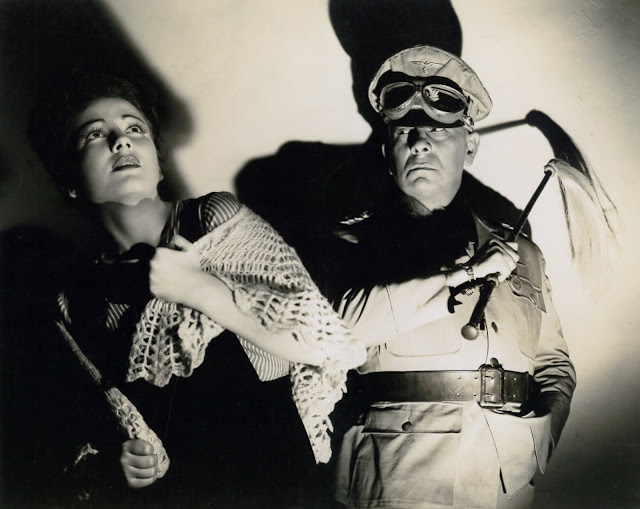Billy Wilder's Take On The War
Five Graves To Cairo played TCM last week. It seems incredible that Billy Wilder's second directorial effort is not available on DVD. Five
Brackett and Wilder wrote (fast) just in front of daily dispatches. News out of the North African campaign anticipated Allied victory, but it could've finished the other way, a contingency that would neatly have scuttled Five Graves To Cairo. German Gen. Erwin Rommel's defeat propelled completion of B&W's spin on the topic, giving
 |
| Had these been Bergman and Grant, we might not have so good a picture as Five Graves To Cairo to look at. |
Having Franchot Tone and Anne Baxter as below the title leads enabled Wilder to put more of his own vision across. Besides, this director's idea of Five Graves' star was supporting player in name only Erich von Stroheim, tabbed to play real-life arch-nemesis Field Marshal Rommel, focal point and loving object of Wilder's fascination throughout filming. Stroheim arrives a couple of reels in and dominates from there. The camera, as though hypnotized, places him center. Von was something of an idol, if not role model, for his director (Wilder had gotten an autographed EvS photo while still in
Writers Brackett and Wilder came up with a brilliant back story for Stroheim's Rommel. You'd think it was all true for conviction they brought to such an audacious set-up. Seems Rommel had set conquest plans in motion by entering
Paramount's topic, being hot as desert sands Wilder photographed, needed to be got out quickly as possible to trade on the public's awareness of recent North Africa victories. Part of excitement surrounding Five Graves To Cairo was said rush into theatres. This one was handled more like a newsreel than a feature, timeliness of the subject making urgent its earliest possible availability. General release had been set for July 1943, however, Paramount sales staff jumped the gun, in Variety's words, by going for May pre-release dates in
 |
| Judging from posters for Five Graves To Cairo, you'd think Von Stroheim was the whole show ... and he very nearly was. |









